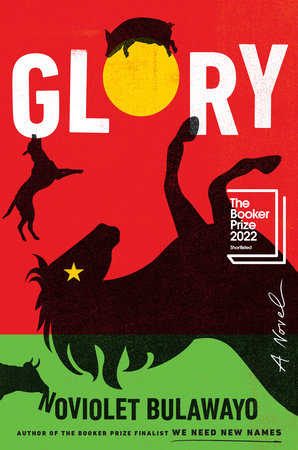⋆⋆⋆⋆⋆
Content Warning: death (including that of children), murder, violence, rape, racism, genocide, misogyny, homophobia, police brutality.
I actually picked this novel up just by chance in my local bookstore. Intrigued by the cover, and vaguely familiar with Bulawayo's name, I read the premise and was immediately intrigued by its originality. Yes, there are shades of Orwell's Animal Farm here, in the usage of satire and animals to commentate on politics, but Bulawayo's novel is totally and completely its own. With one of the most unique writing voices I've ever experienced, full of humor and moments of darkness, I feel lucky that I decided to purchase this on a whim. This could, without a doubt, be a modern classic, the kind of novel that children will be reading in schools in decades to come.
To really delve into this book, you will probably be required to have some prior knowledge of Mugabe and his reign of terror, as well as Zimbabwe's history, both before its liberation and after. I'm only vaguely familiar with these topics, and I actually credit this book with educating me on it, as I was inspired to research and look into all of this whilst I was in the middle of reading Glory. It will help to give you context for the soul and heart behind this book, and to see the ironic, devastating humor in Bulawayo's on-the-nose rendering of real-world politicians into her characters. At its core, though, this book is a tale about humans and humanity (in spite of the fact that the characters are goats, pigs, horses, cows, and the occasional bird or cat!), and you will be able to immerse yourself into it regardless of where you come from, your gender, your race, or anything else.
All of us can relate, to some degree, to the struggles and issues that Jidadan's population struggles through. Even here in America, where many of us are privileged enough to not have to deal with power cuts, no running water, or total internet shutdowns, we have recently experienced a political climate that is getting more and more fraught as the days go on (and this, too, is played at in Bulawayo's novel, with a baboon who is the president of the United States, an inclusion that certainly tickled me). The Ukraine is currently being forced into a brutal war with Russia, and in Putin's dictatorship, we see mirror images of the Old Horse, who believes he is "decreed by God himself to rule and rule and keep ruling."
Ultimately, this beautiful, moving novel was so powerful that I often had to take breaks in between passages and chapters. While Bulawayo uses satire brilliantly, she also doesn't hesitate to speak on brutality, on evil and the many atrocious things the Jidadan (and, therefore, Zimbabwean) government has actively encouraged and participated in. The Gukurahundi, the genocide/democide that Robert Mugabe's Fifth Brigade committed against the Ndebele peoples, is at the forefront of the collective memory in Glory. It is something unspeakable, made speakable, by Bulawayo's confrontation of it.
There are many, many characters, all of them used purposefully and with great artistry, but is it the young goat Destiny that we see ourselves in and who we love and root for, alongside her mother, Simiso. It is Destiny's life and Destiny's family history that we live through, in which we find the beautiful roots of Jidada, hidden for so long beneath the hatred, fear and intimidation. Her story will be enough to bring readers to tears.
I can't recommend this book enough, to anyone and everyone. I will be reading Bulawayo's first novel, We Need New Names, and eagerly awaiting whatever she comes up with next. Glory is a masterpiece, and Bulawayo's writing is so fantastic, so unique, that I think she will be on my mind for a long time to come.


No comments:
Post a Comment